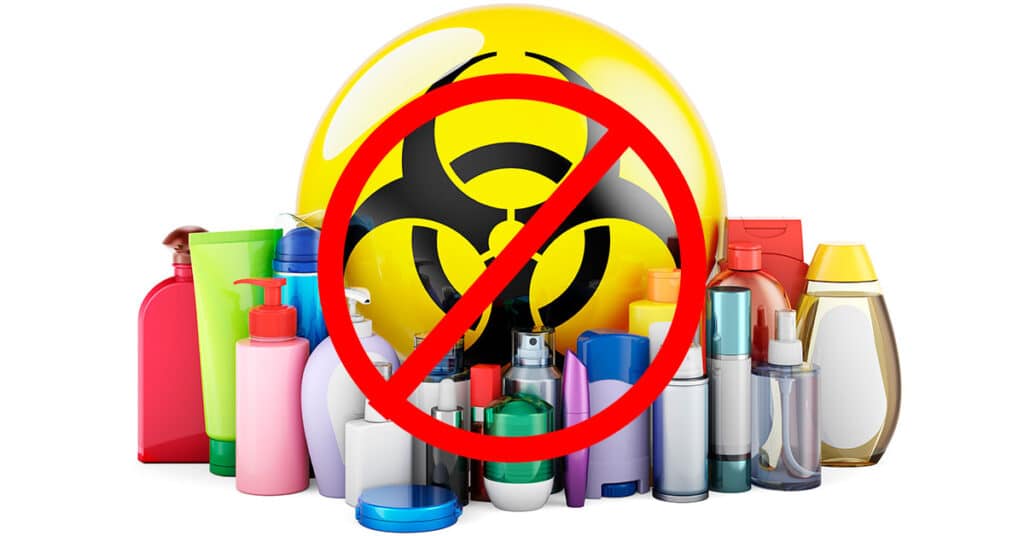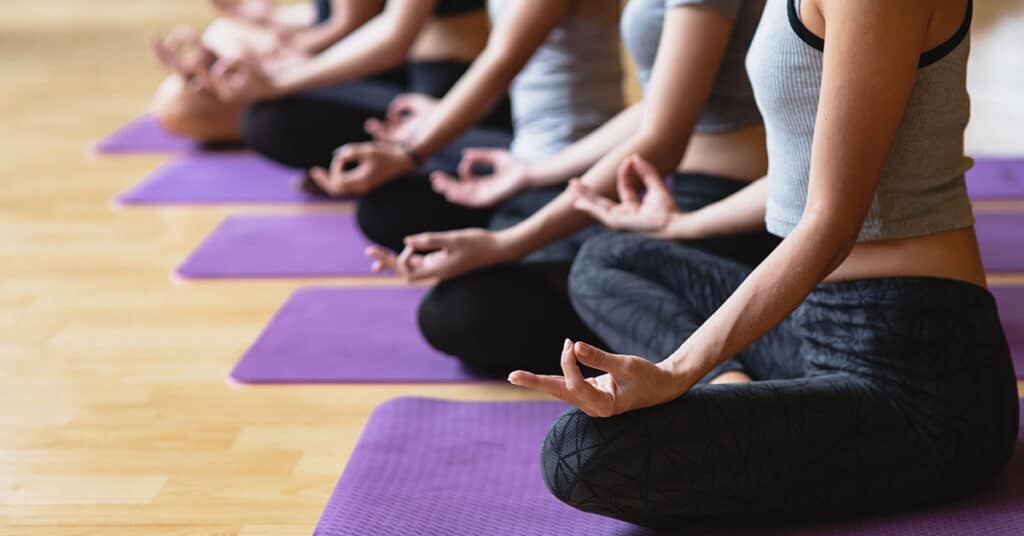Avoid Aging Too Soon: 15 Expert Insights
Maintaining youthful energy and vitality doesn’t involve costly anti-aging treatments. The key lies in straightforward lifestyle changes. Embrace these 15 expert-recommended strategies, including a balanced diet and consistent exercise, to keep your vitality thriving. Start your journey today and see noticeable results that inspire and energize you.
1. Balanced Diet

Embracing a well-balanced diet doesn’t have to mean sacrificing flavor or enjoyment. It’s about discovering the natural deliciousness of a variety of whole foods like fruits, vegetables, lean proteins, whole grains, and healthy fats. These foods not only tantalize your taste buds but also contribute to your long-term well-being. Instead of focusing on limiting processed foods, added sugars, and excess salt, think of it as an opportunity to explore new recipes and flavors that nourish your body and mind. Staying hydrated and being mindful of portions can be simple yet powerful steps towards enhancing your eating habits. Remember, small, enjoyable changes in your diet can make a significant difference in your overall health and wellness.
2. Regular Physical Activity

Attaining lasting well-being is about finding joy in movement rather than a strict exercise regimen. This can include a range of activities that don’t necessarily feel like traditional exercise, such as taking a leisurely walk, gardening, playing with pets, or even engaging in a fun dance session at home. The goal is to incorporate physical activity in a way that brings you happiness. You can seamlessly integrate movement into your daily life by choosing activities that you genuinely enjoy—be it yoga, stretching during a TV show, or a casual bike ride. This approach contributes to your physical health and ensures that these activities become a natural, enjoyable part of your routine, fostering long-term wellness without the pressure of ‘exercise.’
3. Adequate Sleep

Embarking on the journey to timeless well-being includes giving attention to your sleep and aiming for 7-9 hours of restful slumber each night. If you find sleep elusive, don’t be discouraged. Start by gently shaping a consistent sleep routine and creating a restful environment in your bedroom. Experiment with different strategies, like relaxation techniques or a pre-sleep ritual that calms the mind. Remember, it’s about small, manageable changes that can gradually lead to better sleep. Avoiding screens before bedtime is one step, but also consider other soothing activities like reading or listening to calming music. High-quality sleep is a critical component of long-term wellness, and with patience and persistence, you can develop habits that foster restorative sleep.
4. Stress Management

5. Stay Hydrated

Experts consistently highlight the importance of staying well-hydrated for optimal health, but if you don’t enjoy drinking plain water, there are plenty of other ways to ensure you’re getting enough fluids. For a refreshing twist, consider infusing your water with slices of fruits like lemon, lime, cucumber, or berries. Caffeine-free herbal teas can also be a delightful and hydrating option. Eating water-rich foods like watermelon, cucumber, and oranges can contribute to your hydration. Check out our slideshow – 16 Foods To Keep You Cool – The Natural Way to Hydrate. Remember, while limiting excessive caffeine and sugary drinks is essential, focusing on hydration doesn’t mean you have to give up flavor. Finding enjoyable ways to stay hydrated is vital to supporting your overall well-being.
6. Limit Alcohol & Avoid Smoking

Being mindful of alcohol consumption and staying within limits is essential for well-being. If you enjoy drinking, consider moderation as a key. Enjoying a drink occasionally can be part of a balanced lifestyle, but it’s essential to be aware of and respect your personal limits to avoid health risks. Similarly, if you’re a smoker, it’s essential to be informed about the substantial health risks associated with smoking, including exposure to secondhand smoke. Exploring alternatives, such as nicotine replacement therapies or smoking cessation programs, can be a step towards a healthier lifestyle. Remember, prioritizing a smoke-free life and moderate alcohol consumption is not about giving up enjoyment but about finding a balance that maintains both your pleasure and your health.
7. Maintain Social Connections

Cultivating and nourishing relationships with family and friends doesn’t necessarily require large social gatherings or constant interaction. As an introvert, or if you prefer smaller, more intimate settings, focus on the quality of your connections rather than the quantity. Engaging in meaningful conversations with a close friend, sharing a hobby with a family member, or even maintaining connections through digital means like messaging or video calls can be deeply fulfilling. Strong social links are about feeling supported and understood, which can significantly reduce feelings of loneliness and enhance overall well-being. Remember, nurturing relationships in a way that feels comfortable and authentic to you is what truly matters. Still feel overwhelmed? Check out our slideshow: From Recluse to Social Butterfly: 10 Tips for Building New Friendships.
8. Regular Health Check-Ups

To alleviate your anxiety, try to find a healthcare provider who makes you feel comfortable and understands your concerns. Timely identification of health issues is an essential proactive step in caring for your health. Consider bringing a friend or family member along for support during your appointments. Overcoming your hesitation, even with small steps, can significantly impact your health journey.
9. Mental Well-Being

Nurturing a growth mindset isn’t just about traditional learning; it’s about embracing curiosity and discovery in all forms at your own pace. If you find the idea of lifelong learning daunting, remember that it doesn’t always mean formal education or challenging courses. It can be as simple as exploring a new hobby, reading about topics that intrigue you, or even engaging in thoughtful conversations with friends. Being open to new experiences and ideas, in any form that interests you, is a great way to keep your mind active and healthy. Additionally, when facing emotional or psychological challenges, remember that seeking assistance is a sign of strength and an essential step in maintaining your mental well-being. Learning and growth come in many forms, and each small step can contribute significantly to your overall wellness. Check out our article on “How to be Happier? 9 Simple Ways to Be Happier Everyday.”
10. Limit Exposure to Toxins

Exercising caution with the chemicals in your daily environment, including those in your diet and the products you use, is a wise health consideration. However, if the cost of organic or natural alternatives is a concern, there are still effective ways to reduce chemical exposure without straining your budget. Start by prioritizing which items to buy organic, such as those with higher pesticide residues. For other products, thoroughly washing and peeling non-organic produce can also help reduce chemical intake. Additionally, consider homemade or DIY alternatives for cleaning and personal care products using simple, natural ingredients. Remember, every small step towards reducing exposure to potentially harmful chemicals can contribute to better health and well-being, and many of these steps can be taken without incurring significant costs.
11. Spend Time in Nature

Fostering a connection with the natural world benefits mental and physical well-being, even living in a big city where green spaces are scarce. Look for urban oases like public parks, community gardens, or rooftop terraces. Even a short walk in these areas can provide a sense of nature’s revitalizing effects. If green spaces are not accessible, bringing nature indoors can also be effective. Consider indoor plants, which not only beautify your space but also improve air quality. Listening to nature sounds or using nature-themed visualizations can also help create a mental connection with the natural world. Remember, the goal is to find tranquility and natural beauty within your urban environment, which can still significantly benefit your overall well-being.
12. Practice Prevention

In navigating your family’s health history and taking preventive steps, it’s important to remember that it need not be an overwhelming task. Begin with small, achievable actions. Initiating a conversation with a family member about your shared health background is a significant first step. Concentrate on one relevant topic at a time when it comes to staying aware of health hazards and safe practices. This approach ensures that you’re not burdened with too much information simultaneously. Moving at your own pace and taking incremental steps can make a substantial difference in your health journey without causing undue stress. Each small action is a positive stride towards a deeper understanding and practical management of your health. To enhance your daily well-being, consider mastering your mornings by establishing a routine that fits your lifestyle and sets a positive tone for the day.
13. Mindful Nutrition

Mindful eating isn’t about striving for perfection or making immediate, drastic changes. Instead, it’s learning to savor and sincerely appreciate your meals. This skill evolves over time, and each small step forward fosters a more balanced and positive relationship with food, contributing to your overall health. If you find yourself overthinking or feeling anxious about this process, helpful strategies can be found in the article “How to Stop Overthinking – 10 Proven Tactics for a Clearer, Calmer Mind,” which offers insights for a calmer and more focused approach to life’s challenges.
14. Holistic Fitness Practices

Delving into holistic fitness is about exploring various activities that nourish both body and mind, and it’s perfectly okay to start at a pace that feels comfortable for you. If traditional workouts don’t appeal to you or seem daunting, consider gentle and adaptable options like yoga, which can be modified for any skill level, or meditation, which can be practiced in many forms, even for just a few minutes daily. Outdoor adventures don’t have to be extreme either; a simple walk in a peaceful environment can be incredibly beneficial. The key is to find activities you enjoy and make you feel good, regardless of intensity or complexity. Holistic fitness is about overall well-being, not just physical strength or endurance, and every small step you take is a positive move toward achieving timeless health.
15. Mastering Stress

Moreover, nurturing solid social connections and honing your skills in communicating your stressors can profoundly improve your coping ability. Finding and integrating practices that resonate with you is the key to managing stress effectively ensuring a balanced and healthy lifestyle. Diverse activities like drawing, immersing in a good book, or singing can be surprisingly therapeutic. For more insights into stress management through creative outlets, explore our article on how the art of Zentangle can provide relaxation: “How Zentangle Can Relax You.”
16. Discover the 15 Foods Linked to a Longer, Healthier Life

17. 15 Surprising Superfoods Experts Swear By for a Flat Belly

We delve into the essence of holistic health in today’s wellness-focused world. A flat belly is often seen as a symbol of physical fitness, but it signifies much more – it reflects a balanced diet and a healthy lifestyle. In this slideshow, we’ll explore the importance of incorporating various foods from all groups, practicing mindful portion control, staying adequately hydrated, and engaging in regular physical activity – all critical elements for sustaining a healthy way of living:






